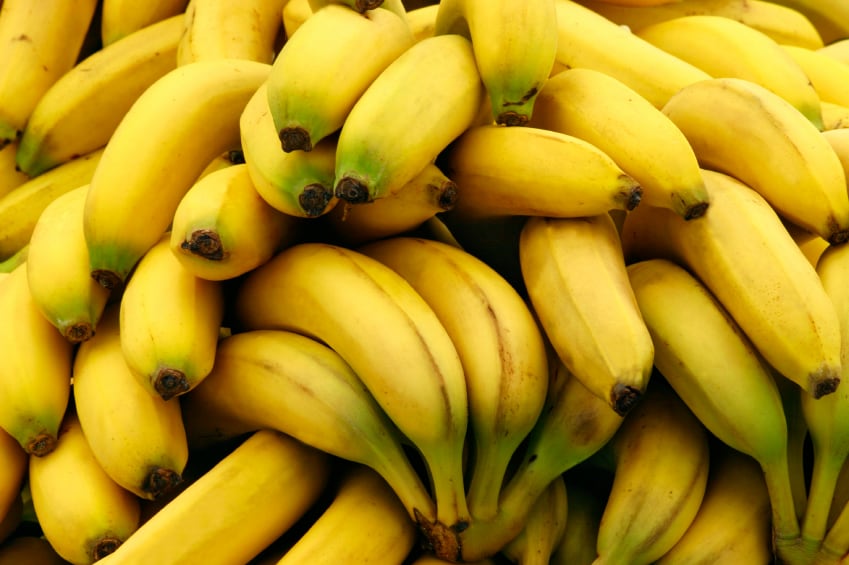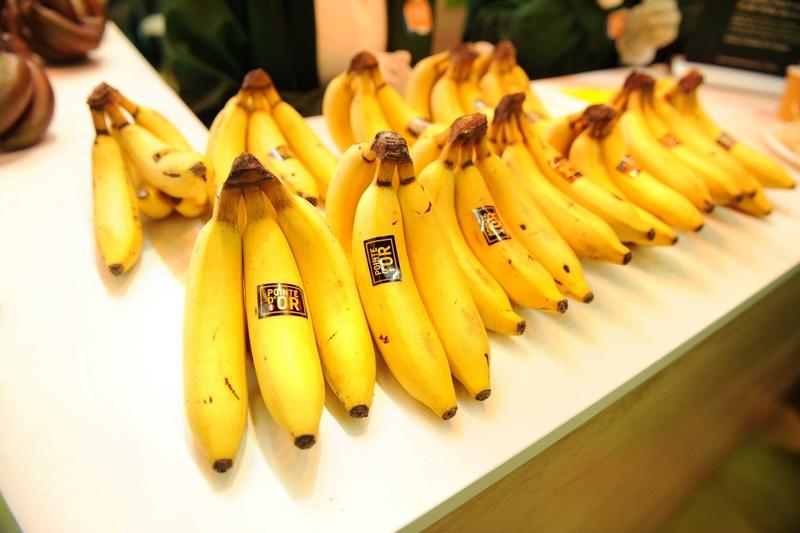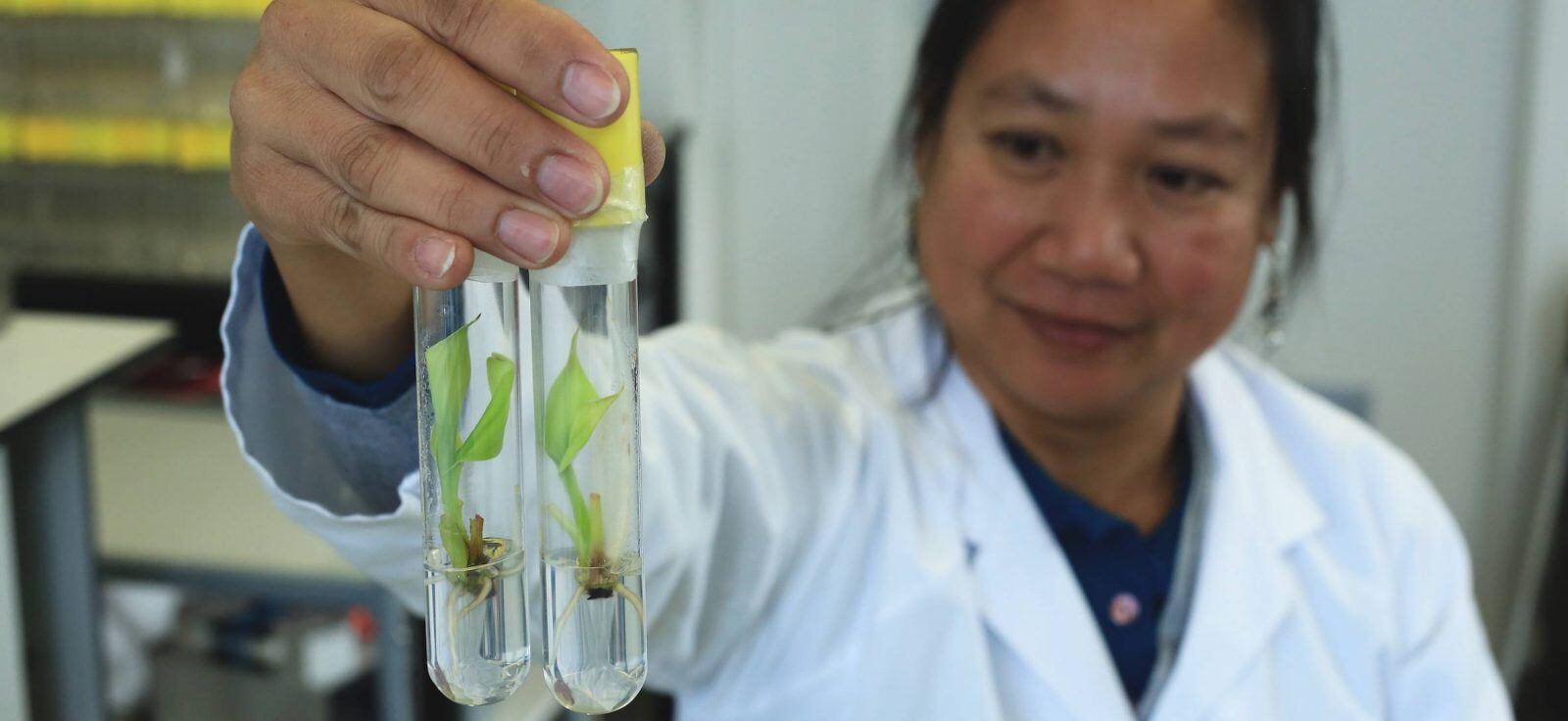Bananas are a vital crop in Central and East Africa. Over 50% of the region’s permanent cropping area is given over to banana cultivation, which currently represents around half of the total agricultural area dedicated to bananas across Africa.
Bananas provide up to one-fifth of total per capita calorie consumption in the region and, according to data from international research project Accelerated Breeding of Better Bananas (ABBB), bananas are a ‘major source of income’ for smallholder farmers in the area with the region’s yearly banana crop valued at $4.3 billion.
Pests and diseases, however, pose a serious threat to the future sustainability of banana production in East and Central Africa. The banana crop in the region achieves just 9% of its potential yield due to spoilage and waste caused by diseases such as Fusarium Wilt and Black Leaf Streak, alongside pests including nematode and weevils, ABBB estimates.
Wageningen University & Research (WUR) and KeyGene are teaming up with the global research program to help combat the problem.
The ABBB is coordinated by the International Institute of Tropical Agriculture (IITA). It aims to achieve a 50% higher resistance to at least three of the major pests and diseases, while at the same time developing a more efficient breeding platform for bananas.
Through the ABBB, WUR and KeyGene will contribute to the development of new banana varieties that are suitable for cultivation in East Africa. These, WUR said, will be resistant to the ‘devastating’ Panama disease.
WUR and KeyGene's participation is funded by the Bill & Melinda Gates Foundation.
The deadly Panama disease
The banana is an important food and trade crop in tropical and subtropical regions.
In Europe and North America, bananas are one of the most consumed and cheapest fruits. Strong growth in banana consumption, particularly in Eastern Europe, is supporting an increase in banana imports.
The most common banana variety is the Cavendish. About 95% of the international trade in bananas, and half of the bananas produced worldwide, belong to this variety.
However, a global threat is facing the production of Cavendish bananas following the outbreak of Fusarium disease, also known as Panama disease, Tropical Race 4, or TR4.
Fusarium is spread by a fungus in contaminated soil called Fusarium oxysporum f. sp. cubense (Foc)¬ and infected plant materials. The disease is thought to be spread by farm machinery or transmitted by traveling farm workers.
Panama disease is spreading worldwide at an alarming rate, in a similar way to the first so-called Race 1 epidemic. In the 1950s, this epidemic destroyed the entire harvest of the then popular Gros Michel banana in Central America.
Fusarium Tropical Race 4 (TR4)
- Fusarium of banana is a disease caused by the soil-borne fungus Fusarium oxysporum f. sp. cubense (Foc)
- The different strains of the fungus (around 35 different reported so far) are grouped into four main ‘races’ based on their vegetative compatibility.
- Races 1 and 2 affect a small number of cultivars and Race 3 affects some ornamentals genetically close to bananas
- Race 4 can infect most varieties, but is known predominantly for attacking Cavendish, the most widely cultivated variety in the world.
Breeding better bananas
Developing resistant banana varieties is expensive, time consuming and requires a considerable amount of land.
To tackle the problem, the international research program ABBB, with financial support from the Bill & Melinda Gates Foundation, is focused on improving the production and production capacity of the banana in the East African highlands.
The project is structured around five strategic goals: banana breeding; pest and disease control; leveraging genetic traits in banana breeding; empowering end-users; and harnessing data. The project’s aim is to develop new banana varieties and improve local cultivation systems and crop protection.
‘Molecular markets’ for more effective breeding
WUR and KeyGene have been working together for five years in the field of banana research. Their participation in ABBB will contribute ‘unique technology, knowledge, expertise and research facilities’ to the program.
“We are delighted to leverage KeyGene's expertise in DNA technology, bioinformatics and indicator development to develop resistant varieties of a crop so critical to food and income in Africa,” said Anker Sørensen, VP of new business and banana research coordinator at KeyGene.
The joint WUR / KeyGene team will work on so-called ‘molecular markers’ with which African banana breeders can more effectively develop banana varieties that are resistant to TR4.
These markers will allow breeders to select seedlings for which a DNA test indicates that the plant is resistant to TR4, significantly improving the effectiveness of the breeding programs.
The team will then identify the genes that make banana plants resistant to TR4 and Race 1, a requirement for new banana varieties.
The importance of effector proteins
Previous research has demonstrated that the so-called Race 1 consists of a ‘coherent whole’ of different Fusarium species. TR4 is actually a separate species from a biological point of view.
The fungi probably use effector proteins to disrupt the plant's immune system, WUR said. These are therefore essential for both the pathogen and the plant's resistance to it.
“The Phytopathology Lab at WUR has solid proven expertise in identifying and studying effector proteins. We are proud that we can now use our knowledge and research expertise to support banana breeding in Africa,” said Gert Kema, professor of Tropical Phytopathology at WUR.



